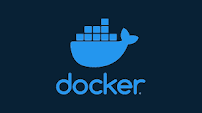Colleagues, the average compensation for a Java Developer is $107,493 according to GlassDoor. To advance your software career here is our Top 10 Countdown. Number 10 is Become a Java Programmer from Udacity. Learn to use techniques like syntax, conditional statements, functions, loops and collections. Exit the program with employable skills to solve real-world programming problems. Basic programming concepts like variables, loops and conditionals are desired. Training modules - each with hands-on labs - include: 1) Java Fundamentals - learn the fundamentals of Java. This course introduces the fundamental concepts and practices of Java programming. These include basic Object-oriented Programming (OOP) concepts such as classes, encapsulation and inheritance, as well as core Java concepts such as collections, exceptions and commonly used Java types (Project: Hotel Reservation Application), 2) Advanced Java Programming Techniques - combine excellent software designs with modern language features. This course will teach you some lesser known features of Java, such as functional programming, I/O, serialization, and reflection, and explore the design ideas that underpin understandable, extensible and scalable software systems. Learn the basic concepts and techniques of concurrent programming in Java, so your programs can take advantage of modern, multi-core hardware (Project: Legacy Web Crawler), and 3) Java Application Deployment - ecosystem topics that are necessary to develop production-ready applications. It starts by covering the construction and makeup of Java program artifacts. You will learn how Java program code is compiled, packaged and executed. Next, you’ll learn how to use Maven to automate and customize the build process, as well as manage external project dependencies. This course also covers the topic of Modules, introduced in Java 9, using the tools of JUnit 5 to write unit tests and evaluate code coverage. To expand our testing capabilities for complex applications, the Mockito library and test doubles will be covered as well (Project: UdaSecurity).
Enroll today and stay tuned for our #9 pick next week (teams & execs welcome): https://tinyurl.com/uazmc8vc
Much career success, Lawrence E. Wilson - Online Learning Central (share & subscribe)
Download your complimentary of the Software Development & Administration - Career Transition Guide.














.jpeg)
